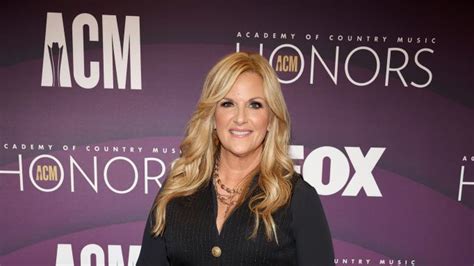
A petition signed by over 500 Broadway professionals has condemned Patti LuPone’s recent on-stage confrontation with an audience member during a talkback performance of “Company” at the 54 Below cabaret venue, reigniting debates about audience etiquette and performer conduct in live theater.
A substantial contingent of Broadway artists, stagehands, musicians, and other theater professionals have publicly rebuked Patti LuPone following a heated exchange she had with a patron at 54 Below. The incident, which occurred during a post-show discussion after LuPone’s performance, involved LuPone allegedly berating an audience member for wearing a hat that obstructed the view of other attendees and not wearing a mask properly. The open letter, initiated by actor and activist Talia Suskauer, explicitly criticizes LuPone’s behavior as unprofessional and detrimental to the community, sparking intense debate within the theater world about appropriate responses to audience disruptions and the power dynamics between performers and patrons.
The petition, titled “An Open Letter Regarding Audience Etiquette and Patti LuPone’s Recent Actions,” explicitly states its intent to “disavow the recent actions of Patti LuPone at 54 Below,” emphasizing that while audience etiquette is essential, “Ms. LuPone’s behavior was, simply put, unacceptable.” The letter also asserts that LuPone’s actions do not represent the values of the Broadway community and undermine the efforts of countless professionals who strive to create inclusive and respectful environments for both performers and audience members.
The controversy began after reports surfaced detailing LuPone’s verbal confrontation with the audience member. Accounts vary, but the core issue revolves around the patron allegedly wearing a hat that obstructed views and failing to adhere to the venue’s mask policy. While some argue that LuPone was justified in addressing the disruption, given her well-known intolerance for audience misbehavior, others contend that her response was disproportionate and created an uncomfortable environment for everyone present. The incident quickly spread through social media, fueling heated discussions and dividing opinions within the theater community.
The open letter gained traction swiftly, accumulating signatures from a diverse array of Broadway professionals, including actors, directors, stage managers, musicians, designers, and crew members. This widespread support underscores the significant concern within the community regarding LuPone’s actions and the broader implications for audience-performer interactions. The signatories represent a collective voice advocating for respectful dialogue and professional conduct, even in the face of challenging audience behavior.
“We believe that fostering a welcoming and respectful environment for both performers and audience members is paramount to the success and vitality of our industry,” the letter states. “While we recognize the importance of addressing audience behavior that disrupts performances, we firmly believe that Ms. LuPone’s actions crossed the line and do not reflect the values we strive to uphold as a community.”
The petition highlights a deeper tension within the theater world concerning the boundaries between performers and audience members, the expectations of proper behavior, and the appropriate channels for addressing disruptions. It also raises questions about the responsibilities of performers in maintaining a professional atmosphere, even when faced with frustrating or disrespectful conduct. The incident has prompted a re-evaluation of audience etiquette policies, venue protocols, and the mechanisms for resolving conflicts between performers and patrons.
LuPone, known for her commanding stage presence and outspoken personality, has a history of confronting audience members who violate theater etiquette. In the past, she has stopped performances to address cell phone use, talking during shows, and other disruptive behaviors. While some admire her unwavering commitment to maintaining the integrity of the theatrical experience, others criticize her methods as aggressive and alienating.
This latest incident has reignited the debate about whether LuPone’s actions are justified in light of her dedication to the art form or whether they represent an abuse of power and a failure to maintain professional composure. The petition’s signatories argue that regardless of the provocation, LuPone’s response was inappropriate and sets a negative example for the community. They emphasize the importance of finding constructive and respectful ways to address audience misbehavior without resorting to public shaming or creating a hostile environment.
The open letter’s impact extends beyond the immediate controversy surrounding LuPone’s actions. It serves as a catalyst for broader discussions about audience etiquette, performer conduct, and the importance of fostering a respectful and inclusive environment in live theater. The signatories hope that the petition will encourage venues to implement clearer policies regarding audience behavior, provide training for staff on how to handle disruptions effectively, and promote a culture of mutual respect between performers and patrons.
The incident also underscores the challenges of maintaining audience etiquette in the post-pandemic era, as theaters grapple with evolving safety protocols and shifting audience expectations. The debate surrounding mask mandates, social distancing, and other health measures has added another layer of complexity to the already delicate balance between performers and audience members. The petition calls for a renewed commitment to clear communication, empathy, and understanding in navigating these challenges and ensuring that live theater remains a welcoming and enjoyable experience for everyone.
The theater community has always grappled with the balance between artistic expression and audience experience. The LuPone incident highlights the ongoing need for open dialogue, clear expectations, and a shared commitment to creating a respectful and inclusive environment for all. The petition represents a collective effort to reaffirm these values and to ensure that future interactions between performers and audience members are guided by mutual understanding and respect. It seeks to establish a framework where concerns are addressed constructively, and the focus remains on celebrating the transformative power of live theater.
The ramifications of this incident are far-reaching, affecting not only LuPone’s reputation but also the broader discourse on acceptable behavior within the performing arts. The petition’s signatories are calling for accountability and a renewed emphasis on professionalism, urging fellow artists to consider the impact of their actions on the community as a whole. The incident serves as a stark reminder that even the most accomplished and respected figures in the industry are subject to scrutiny and must adhere to the principles of respect and inclusivity.
The debate also brings to the forefront the unique pressures faced by performers who are constantly in the public eye. The demands of live performance, combined with the scrutiny of social media and the expectations of fans, can create a challenging environment. However, the petition emphasizes that these pressures do not excuse unprofessional behavior and that performers have a responsibility to conduct themselves with grace and respect, even in difficult situations.
The incident has prompted some to question the role of celebrity in shaping audience expectations. LuPone’s status as a Broadway icon may have contributed to the perception that she is entitled to enforce her own standards of audience behavior. However, the petition challenges this notion, arguing that no performer, regardless of their fame or status, should be exempt from the principles of respect and professionalism.
Moving forward, the theater community must engage in ongoing dialogue about audience etiquette, performer conduct, and the importance of creating a welcoming and inclusive environment for all. This requires a commitment to clear communication, empathy, and a willingness to address concerns constructively. The petition represents a crucial step in this process, providing a platform for open discussion and a call to action for all members of the theater community to uphold the values of respect, professionalism, and inclusivity.
In addition to the open letter, several Broadway organizations and advocacy groups have released statements addressing the incident and reaffirming their commitment to fostering a respectful environment for both performers and audience members. These statements echo the concerns raised in the petition and emphasize the importance of clear policies, effective training, and open communication in preventing similar incidents from occurring in the future.
The incident also highlights the need for theaters and venues to review their audience etiquette policies and ensure that they are clearly communicated to patrons. This includes providing information about mask mandates, cell phone use, and other expectations of behavior. Venues should also train staff on how to address disruptions effectively and respectfully, ensuring that both performers and audience members feel safe and supported.
The debate surrounding LuPone’s actions has also sparked discussions about the power dynamics inherent in live theater. Performers hold a position of authority on stage, and their actions can have a significant impact on the audience experience. It is essential that performers use this power responsibly and avoid engaging in behavior that could be perceived as abusive or intimidating.
The petition represents a collective effort to hold LuPone accountable for her actions and to reaffirm the values of respect, professionalism, and inclusivity within the theater community. It serves as a reminder that even the most accomplished and respected figures in the industry are subject to scrutiny and must adhere to the principles of ethical conduct.
The incident also underscores the importance of creating a culture of accountability within the theater community. Performers, directors, and other leaders must be held responsible for their actions, and there must be mechanisms in place for addressing complaints and resolving conflicts. This requires a commitment to transparency, fairness, and a willingness to address issues proactively.
The open letter has prompted a wider discussion about the role of social media in shaping public opinion and influencing the discourse surrounding controversial incidents. The rapid spread of information and opinions through social media can amplify the impact of such incidents and create a highly charged atmosphere. It is essential to approach these discussions with critical thinking and a willingness to consider multiple perspectives.
The petition’s signatories hope that the incident will serve as a catalyst for positive change within the theater community. They are calling for a renewed commitment to creating a welcoming and inclusive environment for all, where performers and audience members can come together to celebrate the transformative power of live theater.
The incident surrounding LuPone’s actions underscores the delicate balance between maintaining artistic integrity and fostering a respectful environment for all involved in the theatrical experience. The petition serves as a reminder that even the most seasoned professionals are subject to scrutiny and must adhere to the principles of ethical conduct. The hope is that this incident will prompt further dialogue and lead to a more harmonious and inclusive future for the Broadway community.
The incident continues to resonate within the Broadway community, prompting ongoing discussions about audience etiquette, performer conduct, and the importance of fostering a respectful environment. Several organizations have announced plans to host workshops and seminars on these topics, aiming to provide performers and audience members with the tools and resources they need to navigate challenging situations effectively.
The controversy has also prompted some to reflect on the changing nature of live theater in the digital age. The rise of social media and the prevalence of recording devices have created new challenges for performers, who must now contend with the possibility of their performances being captured and shared online without their consent. This has led to increased pressure on performers to maintain a flawless image and to avoid making mistakes that could be amplified on social media.
The petition serves as a reminder that the theater community is a diverse and complex ecosystem, with a wide range of perspectives and opinions. It is essential to approach these discussions with empathy and a willingness to listen to different viewpoints. The goal should be to find common ground and to create a shared vision for the future of live theater.
The incident surrounding LuPone’s actions underscores the importance of ongoing dialogue and collaboration between performers, audience members, and theater administrators. By working together, the theater community can create a more welcoming and inclusive environment for all, where everyone feels valued and respected.
The petition’s signatories hope that their collective voice will inspire positive change and help to create a more harmonious and equitable future for the Broadway community. They are committed to continuing the conversation and to working collaboratively to address the challenges facing the industry.
The open letter remains a significant document in the ongoing discourse about audience etiquette and performer conduct in live theater. Its impact extends beyond the immediate controversy surrounding LuPone’s actions, serving as a catalyst for broader discussions about the values and principles that should guide the Broadway community.
The incident is a reminder that the theater community is not immune to the challenges and controversies that affect society as a whole. By engaging in open and honest dialogue, the community can work to address these challenges and to create a more just and equitable environment for all.
The petition’s signatories are committed to upholding the values of respect, professionalism, and inclusivity, and they believe that these values are essential to the success and vitality of the theater industry. They hope that their collective voice will inspire others to join them in this effort.
The controversy surrounding LuPone’s actions serves as a reminder that the theater community is a living, breathing organism, constantly evolving and adapting to new challenges and opportunities. By embracing change and by remaining committed to its core values, the community can continue to thrive and to provide transformative experiences for performers and audience members alike.
FAQ:
-
What exactly happened between Patti LuPone and the audience member?
- Accounts vary, but the core issue is that LuPone allegedly confronted an audience member at a 54 Below performance for wearing a hat that obstructed the view of other patrons and purportedly not adhering to the venue’s mask policy. The specific details of the exchange, including the exact language used and the audience member’s response, remain somewhat contested, but it is clear that LuPone engaged in a verbal confrontation that was perceived by many as unprofessional. Some reports suggest that LuPone’s reaction was prompted by ongoing disruptions from the audience member throughout the performance, while others emphasize the abruptness and intensity of her response. The incident quickly spread through social media, fueling heated discussions and dividing opinions within the theater community.
-
Who signed the open letter, and what are their primary concerns?
- The open letter, titled “An Open Letter Regarding Audience Etiquette and Patti LuPone’s Recent Actions,” was signed by over 500 Broadway professionals, including actors, directors, stage managers, musicians, designers, and crew members. Their primary concerns center on LuPone’s behavior being “unacceptable” and not representative of the Broadway community’s values. They believe her actions undermine efforts to create inclusive and respectful environments for performers and audience members alike. The signatories represent a diverse cross-section of the Broadway community, encompassing individuals with varying levels of experience and expertise. They are united in their belief that LuPone’s actions were inappropriate and that it is essential to uphold the principles of professionalism and respect in all interactions between performers and audience members. The letter also expresses concern that LuPone’s behavior could discourage audience members from attending live theater events or create a sense of unease among performers who may fear similar confrontations.
-
Why is this incident considered controversial within the Broadway community?
- The incident is controversial because it touches upon several sensitive issues within the Broadway community, including audience etiquette, performer conduct, power dynamics, and the appropriate ways to address disruptions during performances. LuPone has a history of confronting audience members, but this latest incident has sparked renewed debate about whether her actions are justified or excessive. Many feel that while audience etiquette is important, LuPone’s response was disproportionate and created an uncomfortable environment. The controversy also highlights the challenges of balancing artistic expression with the need to maintain a respectful and inclusive atmosphere for all. Some argue that performers have a right to demand respectful behavior from audience members, while others believe that they should handle disruptions in a more diplomatic and professional manner. The incident has also raised questions about the role of celebrity and whether famous performers are held to a different standard of conduct than their less well-known counterparts.
-
What are the potential long-term consequences of this situation for Patti LuPone and the broader Broadway community?
- For Patti LuPone, the incident could potentially tarnish her reputation, although her long and celebrated career likely provides a buffer. However, it could lead to fewer opportunities or a change in public perception. For the broader Broadway community, this incident could prompt venues to re-evaluate and clarify audience etiquette policies, provide training for staff on handling disruptions, and foster a culture of mutual respect. It may also lead to more open discussions about the power dynamics between performers and audience members and the responsibilities of each group in creating a positive and respectful environment. The incident could also influence the way performers interact with audience members in the future, encouraging them to adopt more diplomatic and collaborative approaches to addressing disruptions. Ultimately, the long-term consequences will depend on how the community responds to the incident and whether it can learn from it to create a more harmonious and inclusive future.
-
How does this incident relate to the broader discussions about audience behavior in live theater?
- This incident is directly related to ongoing discussions about audience behavior in live theater, particularly regarding disruptions like cell phone use, talking, and other forms of disrespect. The incident underscores the tension between performers’ expectations of audience attentiveness and the reality of audience behavior. The open letter is a direct response to what the signatories perceive as a breakdown in audience etiquette and a call for greater respect for the performers and the art form. The incident has also prompted discussions about the role of theater staff in enforcing audience etiquette policies and the need for clear communication of these policies to patrons. The broader discussion about audience behavior also includes concerns about the impact of social media on live theater, with some arguing that the prevalence of recording devices and the desire to share experiences online have contributed to a decline in audience etiquette.









